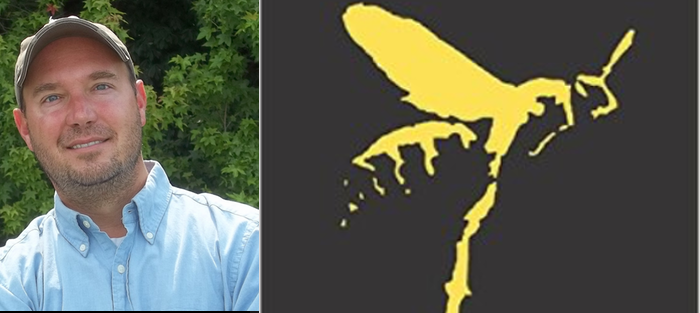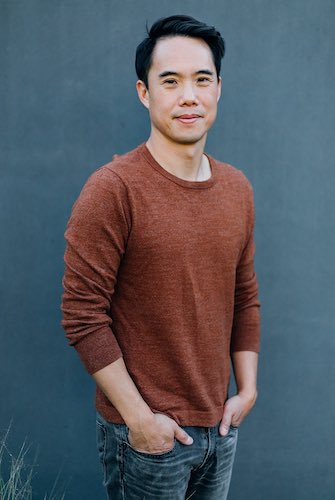Wasp Box, the debut novel by Jason Ockert out this week from Panhandler Books, begins with a soldier returning from a foreign land with a monstrous headache. He opens his mouth and the wasps that have been incubating in his brain take flight, beginning their infestation of a small Upstate New York town. Two brothers arrive to spend the summer with their father, and, while the older one does some growing up, the younger one finds the soldier’s journal and slowly begins to piece together what’s happening around them. The novel is at once a profound commentary on the human condition in America at the moment and a bona fide case of the heebie-jeebies between covers.
I have known Ockert for more than twenty years. We were in undergraduate workshops at the University of Florida together, and we both received our MFAs from Syracuse. We also both did most of our own growing up in Florida, and we both now purport to teach that which cannot be taught at universities ourselves. So he’s always been a kind of mirror for me. I’ve looked to keep up with him. And with this work he has set the bar stratospheric. We had the following conversation at the Sheraton Riverwalk on the banks of the Hillsborough River in downtown Tampa, a fitting place for two fellow Swamplanders to come to terms for the record.
In addition to Wasp Box, Jason Ockert is the author of two collections of short stories: Neighbors of Nothing (Dzanc Books, 2013) and Rabbit Punches (Low Fidelity Press, 2006). Winner of the Dzanc Short Story Collection Contest, the Atlantic Monthly Fiction Contest, and the Mary Roberts Rinehart Award, he was also a finalist for the Shirley Jackson Award and the Million Writers Award. His work has appeared in journals and anthologies including New Stories from the South, Best American Mystery Stories, Oxford American, The Iowa Review, One Story, and McSweeney’s. He teaches writing at Coastal Carolina University.
Interview:
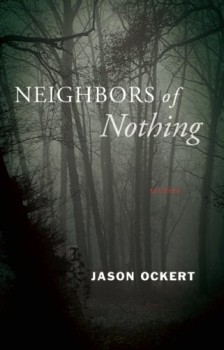 Jeff Parker: What’re you drinking?
Jeff Parker: What’re you drinking?
Jason Ockert: I ordered a glass of house Merlot.
You’re having your house Merlot?
I am. I like the house Merlot.
So, here we sit appropriately on the banks of the Hillsborough River, where unbeknownst to us at this very moment may be swimming manatees and dolphins below the murky surface.
I saw a dolphin out there today.
Yeah?
It was a big dolphin. It was just off the bridge swimming through the river.
You know this is what we should get out of the way first. We should get Florida out of the way first and foremost.
It’s not easy for us to do that. There’s something in the water here besides the dolphins. I can steer around the state, though.
At one point I thought I might set the novel [Wasp Box] in an orange grove rather than a vineyard. It didn’t read right that way. I needed alcohol.
Instead, it’s set in Western New York in a made-up town called Dwyer. I used to live in a town called Farmington, which is right near Canandaigua. At the time I was teaching for Ithaca College and had an hour-and-a half commute each way. Beautiful country. Lots of vineyards. Plenty of time to think.
Also, my aunt and uncle own a farm in Kankakee, Illinois, and I spent a lot of time getting lost in the woods behind their property when I was a boy. I tried to do justice to that place of my youth.
What particular kind of wasp was it that you refer to in the book, the one that’s intentionally brought in to extinguish the bug that eats grapes?
The Muscidifurax raptor. They prey on fruit flies. By “prey” I mean the wasp injects the fly with venom, deposits eggs into its body, and when the eggs hatch the larva munch on the carcass from the inside out. For some reason, and I’m no parasitologist, they devour the brains and eyes last.
That alone was worth it being set in a vineyard.
I find it interesting. Nature’s fucked up. It doesn’t follow any of our rules. The stuff I made up is not half as scary as reality.
Many of the chapters of this novel begin with encyclopedia-like scientific bits. Did you write those yourself or are they facts? How were those formulated?
Yeah, those are facts I discovered when researching that I thought might counter-balance the fantastical elements in the story. The fictional character in the story, Speck, is trying to process the world around him so he’s the one doing the investigating.
Speck! The pose of this book is kind of like, if not his literal later-in-life work, it’s the work he would make.
That’s exactly right. It took me several drafts to realize how much of this story belongs to him.
See, that’s funny. I was drawn to Speck early on, when he seemed still a minor character to his older brother Hudson. As the book goes on, Speck reminded me in some ways of the boy from The Shining: this little kid who is practically irreparably awkward but yet he’s the only one who knows what’s going to kill all the adults.
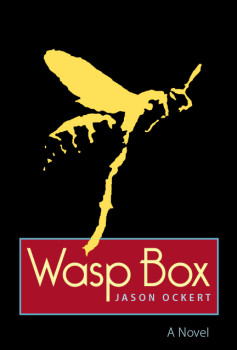 When we’re talking about kids and we’re talking about youth it’s so easy to dismiss their fantasies as inaccurate or something you can placate away. Yet we also romanticize our childhood. “Things were simpler back when…” I don’t claim to know any truth on the subject, I just think that good writers manage to stay curious despite the mind-numbing bullshit that laps upon our adult doorsteps. The kinship to our childhood is that curiosity.
When we’re talking about kids and we’re talking about youth it’s so easy to dismiss their fantasies as inaccurate or something you can placate away. Yet we also romanticize our childhood. “Things were simpler back when…” I don’t claim to know any truth on the subject, I just think that good writers manage to stay curious despite the mind-numbing bullshit that laps upon our adult doorsteps. The kinship to our childhood is that curiosity.
The germ of the book actually came from a memory. When I was a kid and my parents were divorced, I used to go visit my dad on weekends. He lived in this big two-hundred-year-old Victorian house in Pendleton, Indiana. Once, when I was bored and alone in the living room, I discovered a wasp caught on the inside of the window. I have no idea why it was interesting to me. Anyway, I grabbed this ornate porcelain box from a side table and trapped the thing inside. There was a thrill in hearing it buzz around in there. My kid brain wondered what would happen when someone eventually opened the box—the kind of grandmotherly antique that nobody cared about—and discovered the wasp husk. “How in hell did that get in there?” That seemed like a really cool mystery. It gave me something to check on during those weekend visits.
Did you do things like that a lot when you were a kid?
Indiscriminately kill things? No. On the contrary, I was the kind of kid that’d bring a wounded squirrel home.
Like you, I spent a huge chunk of my childhood alone in the woods. The woods in the novel reminded me of my childhood woods behind my parents’ house in Florida. The way that Madison and even Hudson have the woods mapped out, how they know every square inch of them. How they knew the dangerous spots.
Those spots where you sort of stumble upon some locals there that you know are up to some kind of trouble out in the creek, jumping off the rope swing.
Or not even that—the kind of danger map like, you saw a rattle snake over there before once, or you came across a wasp’s nest over there. Or the guy who owns that piece of land doesn’t lock his dog up.
My brother and I were chased by a wild dog once when we were playing in those woods behind my uncle’s farm. Well, if I were honest I’d say that he was chased. I bolted like a rabbit through the corn fields and left him to fend for himself. Ha! What a weasel I was.
I can’t stop thinking about that little wasp you entombed in that porcelain box. Do you know whatever became of it?
Nobody ever found it and I suspect nobody ever will. That’s the disappointing truth and the crushing reality. It means something to me, though, which is why I’m resurrecting it in story.
Let me ask you a different question, taking a wider view on your work. With this one included, I’ve read probably four or five different stories of yours—a“Deviated Septum” and “Echo” and several others—that in some way or another deal with interactions between young and old people. The young tend to border on cruel and the elderly tend toward delusion. Where does that come from? What’s that all about?
When I was seventeen I used to deliver—here I go reminiscing again and Florida’s creeping back in—I used to deliver medication to the elderly.
You delivered it on your bike?
No, the pharmacist let me use his car. I’d drive around those South Florida retirement communities and give the retirees their medicine. A lot of those people were sent down there and forgotten; swept under the rug. It was all rather sad. Sometimes—often, actually—an old-timer would invite me inside and feed me cookies and talk about the good old days. Kind of like what I’m doing now…
Anyway, the point is that I listened. I tried to be empathetic. I don’t start off with an agenda for any of my characters, young or old. I just try to figure them out the best way that I know how by sticking them into difficult situations armed with a bit of improbable hope.
One of the big American stories of our time is the story of all these vets from Afghanistan and Iraq. Guys and gals coming back and dealing with that. And the origin story in your book is a soldier on a covert mission. He returns and brings back the emotional and physical chaos of war to his homeland. He brings back the first brain-eating wasp, incubating the progenitor of the onslaught in his brain.
Yeah. It’s easy to think in terms of “over there” and “here.” It’s not unlike busy, tired, reasonable, hard-working people who just can’t care for their aging parents anymore. Send them to South Florida and write from time to time. It’s dangerous for a civilian to become complacent and believe that we’re immune to what transpires overseas.
I don’t presume to understand the complexities of that big American story. What I attempted to do is locate this one guy, William Gent, and work through the weight of guilt and responsibility that presses upon him. The wasps are those shadows—doubt, regret, and pain—that we all combat in one way or another. In terms of veterans, my grandfather was a bombardier in World War II. He’s got some stories. I borrowed a few for the book.
Once these wasps get into the brain, the effects that they have on characters are harrowing. They essentially become giant incubators for these things. They don’t have to do much more than continue to be warm-blooded.
Until they’re dead.
They’re perceived as drunkards, stumbling and slurring and behaving violently.
And the migraines that follow.
Did you research the symptoms of something like wasp brain parasites?
I’ve been obsessed with fears lately. I’m not sure why. And we should fear insects. Worldwide, infectious and parasitic diseases are the second most common cause of death.
In terms of creatures crawling into your ears, there’s precedent. On one hand, Shakespeare gives us Hamlet with that drop of poison in the King’s ear. Also, there’s the Ceti eel from Star Trek that wiggles into your ear and wraps around your brain. On the other hand, there are facts. A jumping spider really did live inside the singer Katie Mulua’s ear for a week. I’m not making up Naegleria fowleri, the brain-eating amoeba that’s been infecting kids swimming in lakes.
I mean, I made up the symptoms based on what happens when your inner ear is compromised. You lose your balance. You feel noxious. You have migraines. It’s not unlike being drunk and waking up hung over.
One time when I was reading the book, I had a little headache and got totally weirded out. Another time I was reading outside when some kind of fly landed on my ear, and I panicked. Here’s the easy pun, wait for it, wait for it: This book really gets in your head.
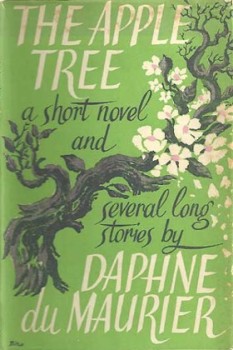 That makes me happy. Not the pun, the trigger. My wasp is your wasp.
That makes me happy. Not the pun, the trigger. My wasp is your wasp.
A while back, before I’d written Wasp Box, I happened to catch Alfred Hitchcock’s The Birds on television. When you think of The Birds, you think of the fucking birds attacking people. But if you go back and watch the movie or read the story by Daphne du Maurier [from her 1952 story collection, The Apple Tree, which was reprinted as The Birds and Other Stories in 1963 with the release of Hitchcock’s film], the birds are menacing, but it’s the relatable horrors of the characters that give the story depth. So, yeah, the violent and grotesque stuff hooks us but it’s the everyday human struggle that reels us in.
Well, I think it’s cheap if it’s not in service of something bigger than the gruesomeness of it all. And in Wasp Box it all seems to be in much larger service. One of the chunks that clicked that I thought was bringing it together: “Raze the fields.” “Raze the fields.” The note that’s left behind. At the time we’re the only ones, the readers, who know the fields are fully infested with the brain-eating wasps. Do you think that’s where we’re at in this country, in this world? Have our brains been infected by vicious parasites and our only hope is to raze the fields?
Not exactly. I haven’t had enough wine to throw in the towel.
It’s easy to get complacent and fall into a routine. Gus realizes, and he’s not thinking rationally at that moment—maybe that’s part of it; not-thinking logically—that in order to produce better wine he’ll have to destroy what he’s spent a lifetime cultivating. That takes a kind of courage that he just doesn’t know how to manufacture.
Let’s switch gears. Back to a topic sure to bore all our readers: us. Despite the fact that we came from, just to put it mildly, nonliterary backgrounds, we both got it in our heads to burn to write. What a weird thing.
Very weird.
But the fact that both of us did, and we both went the same track, has always beguiled me.
Me, too.
I remember, though, and I think I told you this before, a really big thing for me was when I read your story “Jakob Loomis” in the Oxford American, and I thought for the first time I saw one of my peers writing great. Not good. Great. Just first-rate writing and a barnstormer of a story at that. I’d kind of been dicking around up to that point, squandering whatever talent I might have had on being a cut up, acting the fool, which, well, there’s a place for that. But you woke me up to the imperative: that we could tell great, new stories.
Well, thank you. That’s how it is, right? You and I have been running together since we were twenty, even earlier than that. If I can get you to sprint it’s only because I’m chasing after you. “Oh look, it’s another Parker book…”
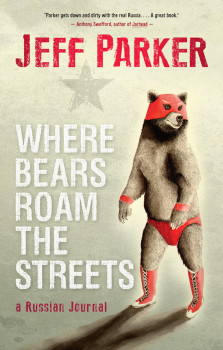 Maybe it just comes down to base competitive spirit.
Maybe it just comes down to base competitive spirit.
Pride, yeah. I think that’s important. If you’re writing and there are no spaces of community—and I don’t mean a summer retreat or internet pals—it’s easy to convince yourself to give up. What you do, and maybe it’s reciprocal because we’re cut from the same cloth, is steal my excuses. I see it as a privilege, frankly.
That’s true. And you’re right it’s really not about competition. It’s stupid to feel competitive about literary stuff. It’s like running a race to see who gets to stand in a six-foot-eight hole.
Doesn’t make a lot of sense.
Doesn’t make much sense at all.
But I think you’ve got to stay hungry. Talk about waking up, one of our heroes was Barry Hannah, and when he died I was really affected by that—not just the loss of his life, of course, but just thinking about all he’d accomplished while living. And what had I done? A whole lot of nothing.
I think that’s part of my problem. I don’t know if that’s part of your problem—you’ve probably got other problems—but sometimes I’m stricken by a deep feeling of irrelevance, that nothing I’ve written means a thing. I’m maybe too comfortable with my self-debasement. And I’m trying to acknowledge it. Talking to you helps. I appreciate you taking time out. Maybe teaching helps, too. No time to wallow in front of the classroom. The bottom line is that I’ll always be uncomfortable in my own skin, and I’ll always be drawn to people who feel likewise.
Me, too. But you’re right: when you’re sitting there making the work it can feel really meaningless. The only sensible response to that is to make it meaningful.
And to know when to raze the fields when the fields need to be razed.

